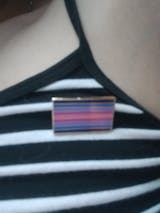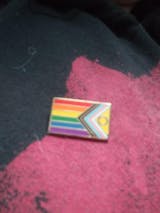"Queer" is a term with a complex and evolving history, and its meaning can vary depending on context and individual usage. Here's a breakdown of its key aspects:
Historically a Slur:
- Historically, "queer" was used as a derogatory and offensive slur against people who were perceived as not heterosexual or cisgender. It was used to shame, belittle, and dehumanise LGBTQ+ individuals.
Reclamation and Contemporary Usage:
- Beginning in the late 1980s and early 1990s, particularly within activist and academic circles, the term "queer" began to be reclaimed by some LGBTQ+ individuals. This reclamation was a conscious effort to:
-
Take back power: By using the slur themselves, individuals aimed to neutralise its negative impact.
-
Embrace a broader identity: "Queer" can be an umbrella term that encompasses a wide range of sexual orientations and gender identities that are not heterosexual or cisgender. This can include gay, lesbian, bisexual, transgender, non-binary, asexual, aromantic individuals, and more.
-
Reject rigid categories: "Queer" can be used to push back against strict and limiting labels of sexual orientation and gender identity, emphasising fluidity and the rejection of normative categories.
-
Foster solidarity: It can create a sense of unity and solidarity among diverse individuals who exist outside of the heterosexual and cisgender norms.
-
Signal a critical stance: For some, "queer" signifies a political and intellectual stance that critiques heteronormativity, cisnormativity, and other systems of power.
Contemporary Meanings and Usage:
-
Umbrella Term: Today, "queer" is often used as an inclusive umbrella term for anyone who is not straight and/or cisgender. This can be a convenient shorthand and a way to avoid the need to list multiple specific identities.
-
Specific Identity: For some individuals, "queer" is their primary and chosen identity. They may feel that it best reflects their experience, their rejection of labels, or their political views.
-
Fluidity and Questioning: "Queer" can also be used by individuals who are questioning their sexual orientation or gender identity or who feel that their identity is fluid and doesn't fit neatly into established categories.
-
Context Dependent: The appropriateness and meaning of "queer" can depend heavily on context, speaker, and audience. While many LGBTQ+ individuals have embraced it, some still find it offensive due to its history as a slur. It's important to be mindful of individual preferences and to use the term respectfully.
In summary, "queer" is a term with a complex history. While once a derogatory slur, it has been reclaimed by many within the LGBTQ+ community as an inclusive umbrella term, a specific identity, and a signifier of a critical stance against normative categories. Its usage requires sensitivity and awareness of its varied meanings and impact.






